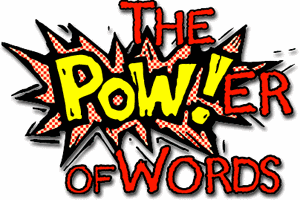What is vocabulary?
Why is vocabulary important?
Vocabulary is word knowledge. Before schooling begins, children learn new words indirectly when adults speak or read to them. Consequently, the type and duration of these activities have a profound impact on a child's exposure to a wide variety of words, what they mean, and how they are used in different situations.
A strong vocabulary is crucial for reading comprehension. A student must not only read a word, but also know the meaning of the word in order to truly understand. Students entering school with limited vocabulary or word knowledge are less likely to be successful in overall academic achievement.


Vocabulary

I collect words - they are the sweets in the mouth of sound. Sally Gardner, Maggot Moon
Watch this Kindergarten class learn a new word and look for these best practices:
-
repeating the target word multiple times
-
discussing the target word in the context of a story
-
relating the target word to words students already know
-
showing concrete examples and non-examples of what the word means and doesn't mean
Helping Children Develop Vocabulary Knowledge
Your child is learning about words and what they mean from the moment he or she is born! Although it may not seem like learning, talking to and reading with your child builds strong connections in the brain about how words work and what they mean. The key to building these strong connections lies in the quality and quantity of the talking and reading. Use the following strategies to help teach your child new words!
Ask Questions
Determine your target word and ask a question(s) related to it.
EXAMPLE
If you discovered you were wearing shoes that didn't match, you might be embarrassed. Why? What else could make you embarrassed?
Image Credit:http://www.tourva.com/wp-content/uploads/2011/06/kid-wearing-mismatched-shoes.jpg

Use Examples
Come up with examples for your target word.
EXAMPLE
Which of these things would be impressive?
-
A dog that can bark or a dog that can count?
-
Starring in a movie or watching a movie?
-
A dinosaur bone or a chicken bone?

Provide Choices
Ask your child to choose which things match your target word.
EXAMPLE
If any of the things I say sound rambunctious, say "RAMBUNCTIOUS." If not, say "NOT RAMBUNCTIOUS."
-
Reading a book
-
Jumping on the bed
-
Running in the house
-
Walking in the park
-
Having a pillow fight

Label
Enrich your child's vocabulary by labeling objects around your house.

chandelier
Books That Support Vocabulary Aquisition




Remember: Read from a wide selection of genres, read often, and embrace new words!
Need more?
Contact your child's teacher for additional information.
Thank you for visiting our site


Thinking about linking this page to your own site? Please let us know by contacting kkerr@homercentral.org.
Activities courtesy of Voyager U, Vocabulary Module 6